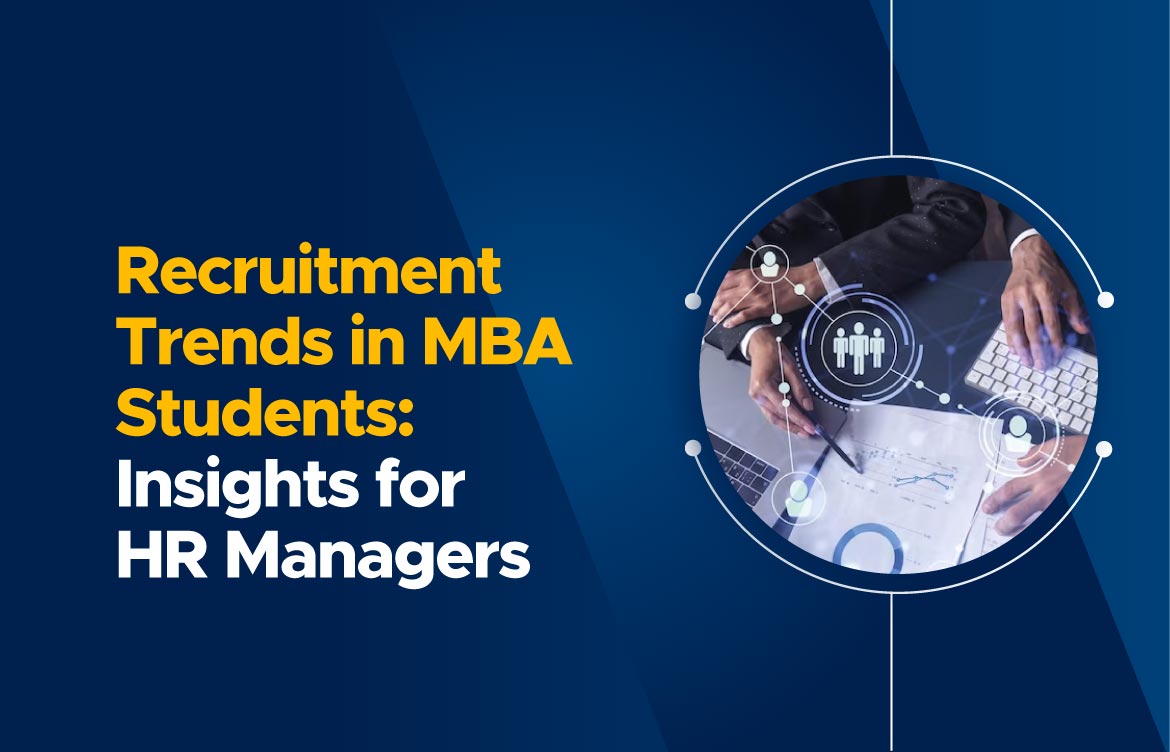Recruitment trends in MBA students: What HR managers need to know?
The role of technology in HR is now redefining the operations which include technological advancements like AI, machine learning and advanced HR software. These advancements make revolution in HR functions from recruiting to analyzing the employee performance. The human resources management colleges in Tamil Nadu provide the knowledge of HR activities, roles, and responsibilities whereas the advancements in the field allow MBA graduates to stay updated with the trends. The inclusion of AI in the recruiting process makes it easier for them to select the candidates from the matching algorithms rather than choosing the candidates from the vast pool of applicants. Technology game-changers provide a significant effect on the employee’s data analytics and performance management. In this article, get to know the emerging trends in the HR field that MBA graduates should know before entering into corporate.
What are the HR trends that MBA graduates should be aware of?
Recruitment process based on skills:
The employment market has seen a significant shift with the rise of skills-based hiring. This change reflects the fact that businesses are beginning to value experience and practical abilities over traditional academic credentials.
- Beyond its effects on recruiting people, skill-based recruiting rewards employees based on the skills they possess. Hence it eliminates the potential risks in terms of salaries and careers. This skill-based recruitment process benefits employers as it expands the talent pool, speeds up the hiring process, and encourages a more diverse staff.
- Hiring based on skills expands the pool of external candidates and gives current employees new opportunities to grow in their careers. The transformation brings opportunities to the employees and freshers who follow the educational paths that are designed for particular industries and competencies.
- Skill-based hiring transforms the hiring process which significantly has a great effect on MBA graduates. By analyzing individual skills, businesses align their employees with current demands. This approach benefits both employees and organizations promoting a dynamic workspace.
Flexibility and Hybrid Model:
Today, you can see the incorporation of remote work and in-office employees which is now permanent as some may see these strategies as an experiment for a long time. It makes the MBA graduates look for various opportunities from part-time, and full-time remote work which makes them work on flexible hours.
Therefore, this model supports the knowledge and frontline employees to decide when and how they work. This flexibility is a great advantage for the employees and employers can also benefit from it as enhanced talent acquisition and retention are made easy.
Transformation in management capabilities:
Developments such as pandemics, wars, natural disasters, changes in politics, and technological revolutions show that the most firmly established organizations can be disrupted by unforeseen circumstances. An organized approach that deals with changes to the objectives, procedures, or technological infrastructure of an organization to regulate breaks, carry out change management plans and assist people in adapting with the least amount of interruption. To ensure that transitions are successful, the following behaviours are essential:
- Accepting digital adoption platforms as a means of promoting change.
- discovering and enabling individuals and managers to act as drivers of change.
- Incorporating transformation into a company’s culture.
- implementing change management through a data-driven strategy.
Enhancing the employee experience with analytics:
Businesses are now using people analytics to boost productivity. Analyzing people is essentially gathering data on human resources and worker productivity and converting it into insights that HR can utilize to improve corporate performance and the employee experience in general.
- Employers use data to explore the opinions and private lives of their staff members to improve experience offerings and engagement tactics.
- Personalized onboarding programs that help new hires feel appreciated and supported are made possible by data analytics.
- Benefits like paid time off, aid schemes for employee well-being, and mental health support services will all become new priorities.
- Also, companies are moving from offline to online experiences; online team-building exercises, health courses, and mindfulness practices are becoming more and more common.
Wellness programs are part of HR tactics:
Putting employee wellness initiatives first has become a critical business strategy for organizations trying to increase customer happiness, lower employee layoffs and improve productivity. These health programs cover a wide range of topics and recognize that happy workers are more productive.
- Programs for financial wellness may include services like access to financial planners and tuition remission.
- Physical wellness programs could include discounts on gym memberships or on-site exercise facilities.
- Programs for mental well-being promote open communication between peers and supervisors, give access to telehealth specialists, and permit sick or rest days.
- Employee engagement platforms are a common component of social wellness efforts since they help to build a sense of camaraderie and connection among staff members.
Conclusion:
The above-mentioned are a few emerging trends where MBA graduates to understand the implications in today’s corporate sector. However, the top colleges for human resource management organize seminars, and webinars for the students to develop their networking skills. It helps them to recruit with the employee referral programmes which provide better results and makes HR simplify the recruitment process.



